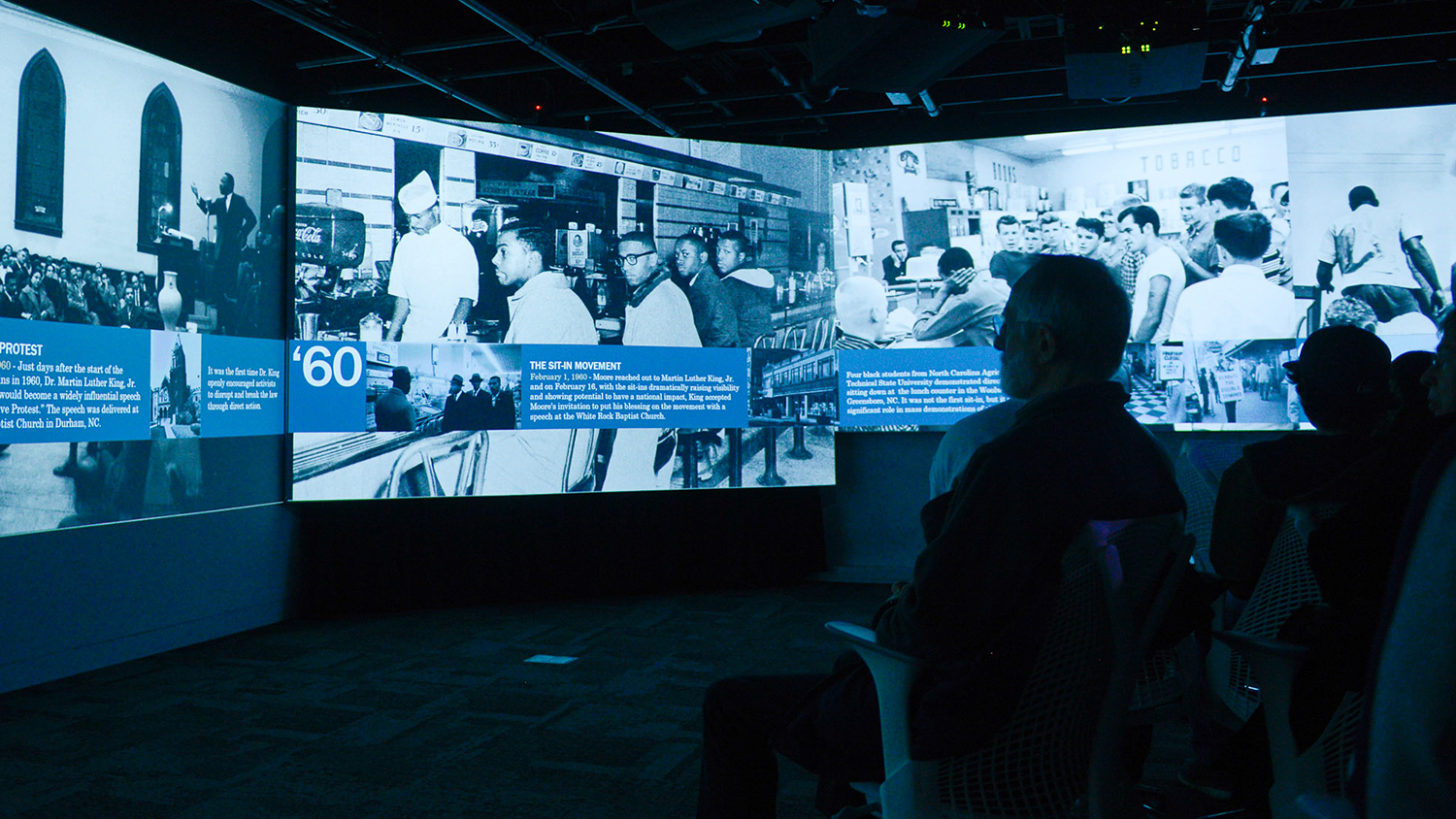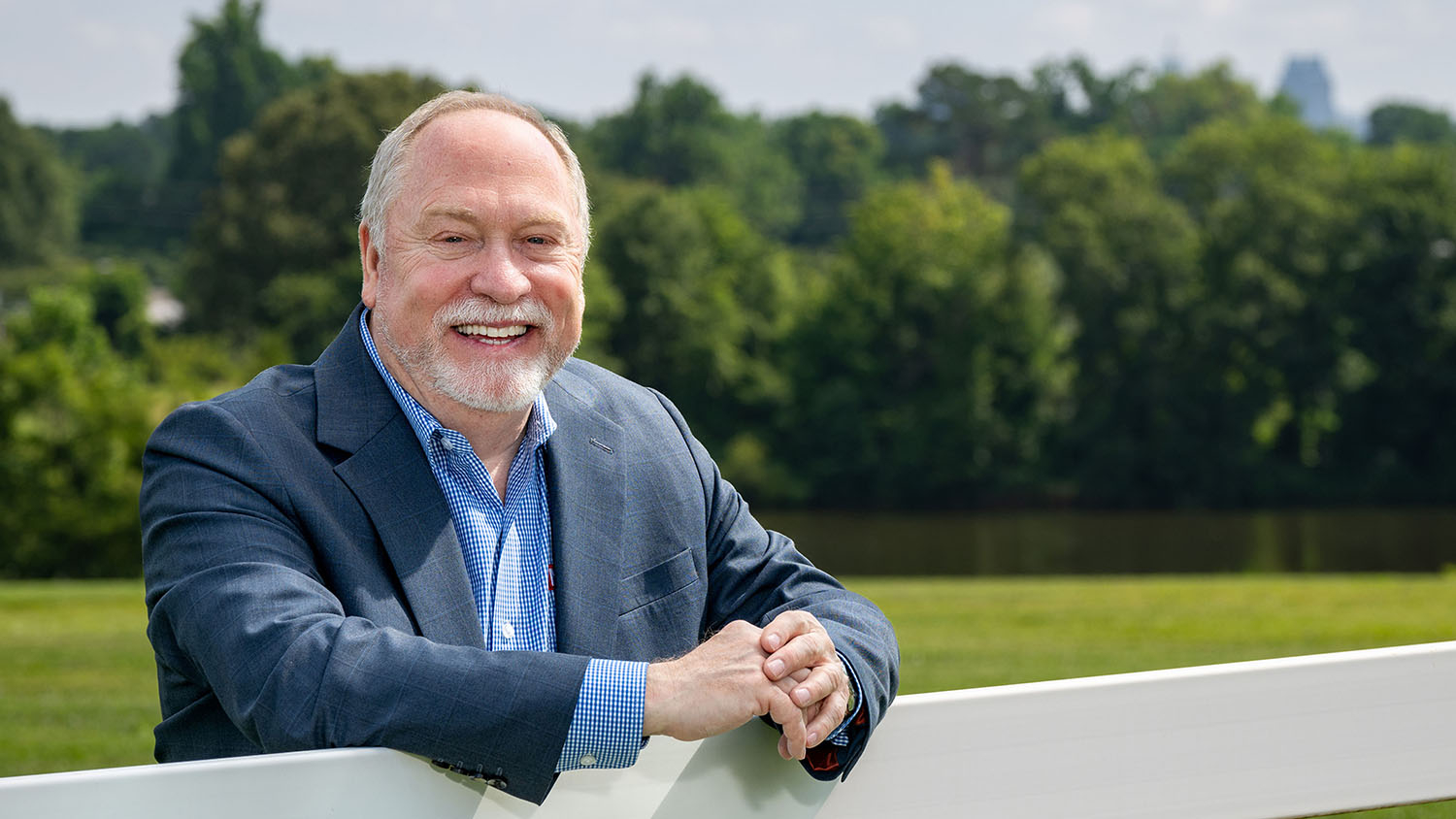Faculty Share Innovative Projects at Smithsonian

The NC State Dance Program and the Virtual MLK Project take the stage in Washington, D.C. next month at a three-day festival showcasing innovative university projects that combine art, science and humanities to address global challenges.
The 15 universities of the Atlantic Coast Conference highlight some of their most creative research and academic work at “ACCelerate: ACC Smithsonian Creativity and Innovation Festival,” Oct. 13–15 at the Smithsonian’s National Museum of American History in the nation’s capital. Presented by Virginia Tech’s Institute for Creativity, Arts, and Technology and the Smithsonian’s Lemelson Center for the Study of Invention and Innovation at the National Museum of American History, the festival will provide an opportunity for visitors to engage with leading innovators of creative exploration and research at the nexus of science, engineering, arts and design.
The Virtual MLK Project uses three distinct multimedia experiences (walk-in surround sound, gaming simulation and virtual reality simulation) to immerse visitors in a reenactment of Martin Luther King’s February 1960 speech at White Rock Baptist Church in Durham. The speech marked the first time King openly encouraged activists to disrupt and break the law through nonviolent confrontation even if it meant filling up the jails. Despite the historical and rhetorical significance of this speech, no audio recordings have been located and the church has been torn down.
The project’s research team includes Victoria Gallagher, Keon Pettiway, Derek Ham, Pete Schreiner, Emily Winderman, Max Renner, Chandra Maldonado, Ryan McKenna and Robert Bell.
The NC State Dance Program will present two distinct performances at the festival. “Dancing Chemical Reactions” premiered at the State of Sciences in the Hunt Library in April. Dance director Tara Mullins, with assistance from Maria Gallardo-Williams’ chemistry students and Dance Program science majors, choreographed two dance pieces that demonstrated the Sn1 and Sn2 substitution reactions. The dances are factually accurate to the specific chemical reactions, yet aesthetically engaging, in order to demonstrate an innovative way to merge STEM and the arts to enhance the learning process. Holly L. Menninger, director of Public Science in the College of Sciences, and Amy Sawyers-Williams at Arts NC State, also collaborated on the project.
“Agua Furiosa,” choreographed on NC State’s Panoramic Dance Project by Maria Alvarez of Contra-Tiempo, was inspired by Shakespeare’s The Tempest and Oya, the Afro-Cuban deity of wind and storms. It blends salsa, Afro-Cuban movement, hip-hop and other forms of contemporary dance. The choreography deals with the harsh realities of race (Black Lives Matter), economic inequity, gun violence (“Hands up, don’t shoot”) and other issues by presenting the forces of nature as a metaphor for social justice.
Other NC State programs exhibiting at the conference include:
- Insect Biobots for Search and Rescue After Natural Disasters by researchers Alper Bozkurt and Tahmid Latif
- A Fashionable Response to Mosquito Protection by researchers Andre West, Michael Roe, Charles Apperson, Marian McCord, Emiel DenHartog, Jiayin Li and Lilah Halbkat
“The ACCelerate festival is perfectly aligned with the ACC’s vision of being at the forefront in educational achievement and innovation,” said ACC Commissioner John Swofford. “I applaud this outstanding initiative that showcases the incredible work taking place at our 15 member institutions.”
The event is free and provides the ACC’s member institutions an opportunity to display their work to each other and, more importantly, to the public. Student performances, conversational talks and interactive exhibits will feature digital humanities projects, musical performances and creative art displays, 3-D printing, robotic processes and multimedia exhibitions, among others. View information on all festival exhibitions online.
In addition to the 47 featured interactive installations, the festival will include panel discussions and performances throughout the three days around six thematic areas:
- Civic engagement
- Arts and technology
- Sustainability and the environment
- Biomimetics
- Health and body
- Making and advanced manufacturing
“The Lemelson Center is focused on empowering the public to solve problems, navigate challenges and effect real change in their lives and communities,” said Jeff Brodie, deputy director of the Lemelson Center for the Study of Invention and Innovation. “We view the partnership with the ACC institutions as a wonderful opportunity to connect incredible innovators with the public who will be inspired to think about invention in new and dynamic ways.”
Visit the festival website for more information about the schedule, performance descriptions and exhibitions.
This post was originally published in NC State News.
- Categories:


